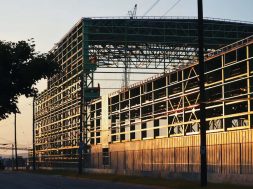PPP projects most prone to corruption?
PPP projects most prone to corruption?
A survey by the UN Office on Drugs and Crime finds that PPP projects in India’s roads and power sectors are the centre of corruption
It seems corruption is becoming an identity in India’s popular culture. According to a study by United Nations, public private partnerships (PPP) projects in India’s roads and power sectors are most prone to corruption. Not surprisingly, the government is emerging as the biggest menace.The UN Office on Drugs and Crime (UNODC) has held Indian laws’ ability to curb such grafts as culprit. The UNODC has also suggested that the government should make private partners in PPPs accountable under the RTI Act. This would protect whistleblowers and guarantee service delivery to citizens as brings such projects under the proposed laws.
The UNODC has published its reviews on India’s preparedness to deal such corruption on “Probity in Public Procurement”. The report underlines that such spending from the exchequer is responsible for 20-30 per cent of India’s GDP; whereas the global GDP spend on public procurement is only 15 per cent.
The government has sanctioned about 758 PPP projects, worth nearly 4 lakh crore, in roads, energy, airports, education, and healthcare sectors. According to UN, the government doesn’t have any central law to govern either PPPs or public procurement.
If 12th Five-Year Plan to be believed, India aims to invest $1 trillion between 2012 and 2017 in the infrastructure, mostly through the PPP. “This growing trend merits the need for legislation and procedures to address probity issues in PPPs,” the UN report states.
When UNODC tried to assess the ground realities on corruption in PPPs and government officials, it reached out to 400 private sectors; however, only 100 responded. “Most entities were silent, reticent or cautious in their responses to (queries about corruption),” the study reveals.
The survey finds that 42 perfect firms feel road and power sectors are most prone to corruption, and 75 per cent government officials believe this is true. Almost 87 per cent private players believe that the bidding norms and tender criteria are rigged to suit certain bidders, and surprisingly more than 44 per cent bureaucrats agree on this.
For modernising airports and creating new capacities in energy and transportation sectors, the government has developed different revenue-sharing models through PPP projects. However, the bureaucrats have conceded that several private partners deprive exchequer of its rightful share.
The pending Public Procurement Bill of 2012 covers PPPs, UPA strategise to use it to curb corruption in public purchases. The law, if passed, can make India compliant with procurement-related mandates under the UN Convention Against Corruption, which India had signed in 2011.
However, loose ends don’t seem to be tied. For instance, the Bill restricts PPPs to have projects with consecutive 5 years. The bill also excludes construction and maintenance projects that don’t provide service on payment of user charges. A large number of public projects would lose the contracts due to the bill which is in contrast to the draft National PPP Policy of 2011.
Although the proposed law has a provision to exclude bidders convicted of graft or crimes under the Indian Penal Code for 2- 3 years, the UNODC has asked that defaulting bidders must prove their integrity before being allowed to bid for public contracts again.
Law may bring all central ministries on the same page, states — especially which are aggressively betting on PPPs — would operate in an ad-hoc manner. Most states don’t have a legislation to regulate public procurement or PPPs, and states like Tamil Nadu and Rajasthan have already introduced such laws last year. However, Andhra Pradesh, which has highest PPPs in the country, has been struggling to finalise a law.
The report suggests that the government should tighten vigil on the officials who award big-ticket contracts. The government should mandate the contractors to declare their assets regularly, screen their appointments more rigorously, and ensure they don’t have conflicts of interest. And it should top the priority list.
The UN report has also suggested not considering e-procurement as the prime solution to curb kickbacks for contracts. But it’s also true that e-procurement can bring more transparency into public expenditure.
Cookie Consent
We use cookies to personalize your experience. By continuing to visit this website you agree to our Terms & Conditions, Privacy Policy and Cookie Policy.









